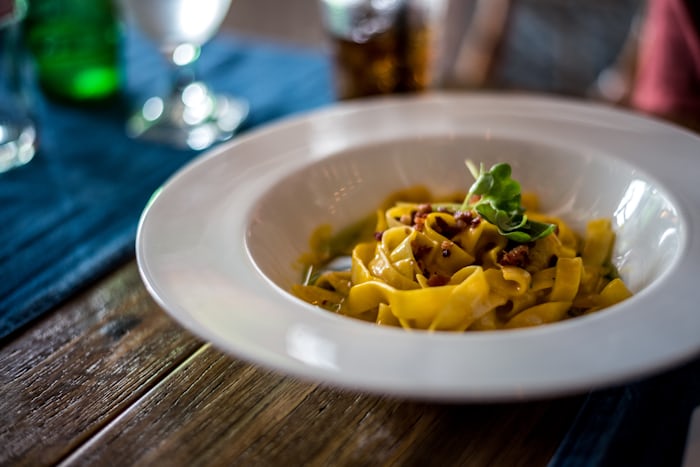Table of Contents
Imagine this: you’re enjoying a delicious meal when suddenly, you realize you’ve accidentally ate food with cockroach. It’s a scenario that can turn anyone’s stomach and spark a flurry of worried questions.
While accidentally consuming these unwanted critters is far from appetizing, it’s a situation that leaves many wondering about the potential health impacts. In this article, we’ll delve into the consequences of unintentionally ingesting cockroaches, their eggs, or even their droppings. We’ll separate myths from facts, providing you with clear, science-backed information to understand the risks and alleviate your concerns.
Whether you’re dealing with this unsettling experience firsthand or simply curious about what might happen, we’ve got you covered. So, let’s explore this unappetizing topic that no one wants to encounter but everyone needs to know about.

What happens if you accidentally eat cockroach
It’s a scenario that might make your skin crawl, but accidentally ingesting a cockroach isn’t as dire as you might think. While undoubtedly unpleasant, in most cases, it’s unlikely to cause serious harm to a healthy adult.
First, let’s address the immediate concern: Your body’s natural defenses will typically kick in. The strong acids in your stomach are designed to break down various foods and kill most harmful bacteria. These same acids will work on the cockroach, effectively neutralizing any potential threat.
However, there are a few things to keep in mind:
1. Allergic reactions: Some people may be allergic to cockroaches. If you experience symptoms like difficulty breathing, swelling of the throat or tongue, or hives, seek medical attention immediately.
2. Potential for foodborne illness: Cockroaches can carry various bacteria and parasites. While stomach acid will destroy most of these, there’s a small risk of contracting a foodborne illness. Watch for symptoms like nausea, vomiting, or diarrhea in the following days.
3. Psychological impact: Often, the most significant effect is psychological. The idea of eating a cockroach can be deeply unsettling and may cause anxiety or disgust.
4. Choking hazard: In rare cases, larger cockroach parts could pose a choking risk, especially for children or the elderly.

It’s worth noting that in some cultures, certain species of cockroaches are considered delicacies and are intentionally consumed. While this doesn’t make accidental ingestion any more appealing, it does highlight that cockroaches themselves aren’t inherently toxic to humans. If you’re concerned about having ingested a cockroach, it’s always best to stay hydrated and monitor your symptoms. In most cases, no medical intervention will be necessary.
However, if you experience persistent symptoms or severe reactions, don’t hesitate to consult a healthcare professional. Remember, prevention is key. Maintain proper food storage and hygiene practices to minimize the risk of encountering unwanted “ingredients” in your meals. If you have a persistent cockroach problem in your living or dining areas, consider contacting a pest control professional to address the issue.
What happens if you accidentally eat cockroach eggs
The thought of ingesting cockroach eggs might send a shiver down your spine, but let’s explore what actually happens if you accidentally consume these tiny, unwanted “supplements.” First, it’s important to understand what cockroach eggs look like. They’re typically encased in a small, dark, oval-shaped capsule called an ootheca. Each ootheca can contain up to 50 eggs, depending on the species. These capsules are often hidden in cracks, crevices, or sometimes attached to food packaging.

If you accidentally ingest cockroach eggs:
1. Digestive process: Your digestive system is remarkably efficient. The strong acids in your stomach will typically break down the egg casings and their contents, just as they would with other organic matter.
2. Hatching is unlikely: The environment inside your digestive tract is hostile for cockroach egg development. The combination of stomach acid, digestive enzymes, and lack of oxygen makes it extremely unlikely for the eggs to survive, let alone hatch.
3. Nutritional aspect: While certainly not a recommended dietary supplement, cockroach eggs are primarily composed of protein and chitin (a fibrous substance). In the unlikely event they survive the stomach, they would be processed much like other proteins.
4. Potential for contamination: The main concern with ingesting cockroach eggs isn’t the eggs themselves, but potential contaminants. Cockroaches often live in unsanitary environments, so their eggs might carry bacteria or other pathogens.
5. Allergic reactions: As with adult cockroaches, some individuals may be allergic to cockroach eggs. If you experience symptoms such as itching, swelling, or difficulty breathing, seek medical attention immediately.

6. Psychological impact: Often, the most significant effect is psychological. The idea of consuming insect eggs can be distressing and may cause anxiety or disgust.It’s worth noting that in some cultures, insect eggs (though typically not cockroach eggs) are considered delicacies. While this doesn’t make accidental ingestion any more palatable, it underscores that insect eggs aren’t inherently harmful to humans.If you suspect you’ve ingested cockroach eggs, stay hydrated and monitor for any unusual symptoms. In most cases, no specific treatment is necessary.
However, if you experience persistent gastrointestinal issues or other concerning symptoms, consult a healthcare professional.
Prevention is key:
- Inspect food packaging carefully before use, especially if it’s been stored for a while.
- Keep food in sealed containers.
- Maintain a clean kitchen and dining area.
- If you have a persistent cockroach problem, consider professional pest control services.
Remember, while the idea of eating cockroach eggs is unpleasant, in most cases, it’s unlikely to cause serious harm to a healthy adult. Your body is well-equipped to handle such occasional, unwanted visitors.
What happens if you accidentally eat cockroach poop
It’s not a pleasant thought, but let’s dive into what actually occurs if you unintentionally consume cockroach droppings, often referred to as “frass” in entomological terms. Cockroach frass is typically small, dark, and cylindrical, resembling coffee grounds or black pepper. It’s often found in areas where cockroaches frequent, such as kitchen cabinets, behind appliances, or in food storage areas.
If you accidentally ingest cockroach droppings:
1. Digestive process: Again, your digestive system is remarkably resilient. The powerful acids in your stomach will generally break down the frass just as they would other organic matter.
2. Potential health risks: The primary concern with ingesting cockroach droppings isn’t the frass itself, but what it might contain. Cockroach feces can harbor various pathogens, including:
– Bacteria: Such as Salmonella, E. coli, and Listeria
– Parasites: Including certain types of worms
– Viruses: Though less common, some viruses can potentially be transmitted

3. Allergic reactions: Cockroach frass is a known allergen. It contains proteins that can trigger allergic responses in sensitive individuals.
Symptoms might include: – Respiratory issues (coughing, wheezing, or asthma attacks) – Skin reactions (itching or hives) – In severe cases, anaphylaxis (though this is rare)
4. Food contamination: If cockroach droppings are present in your food, it’s a sign of a larger pest problem. The food may be contaminated with other harmful substances or pathogens.
5. Psychological impact: As with other accidental insect-related ingestions, the psychological effect can be significant. Feelings of disgust, anxiety, or worry are common and understandable reactions.
What should you do?
- Stay calm: While unpleasant, accidentally consuming a small amount of cockroach frass is unlikely to cause severe harm in most healthy adults.
- Monitor your symptoms: Watch for signs of foodborne illness such as nausea, vomiting, diarrhea, or fever in the following days.
- Stay hydrated: Drink plenty of water to help your body process and eliminate any potential contaminants.
• Seek medical attention if:
– You experience severe or persistent symptoms
– You have a compromised immune system
– You’re pregnant or have other health concerns

• Address the root cause: If you’ve found cockroach droppings in your food or living space, it’s crucial to tackle the underlying infestation:
– Thoroughly clean and disinfect all areas.
– Seal food in airtight containers
– Consider professional pest control services
Prevention is key
1. Regularly inspect your kitchen and food storage areas
2. Maintain a clean living environment
3. Properly store food in sealed containers
4. Address any moisture issues in your home, as cockroaches are attracted to damp areas
Remember, while the idea of consuming cockroach frass is undoubtedly unpleasant, your body is generally well-equipped to handle such occasional, unwanted exposures. However, it’s always best to prioritize prevention and maintain a clean, pest-free environment to avoid such scenarios altogether.

